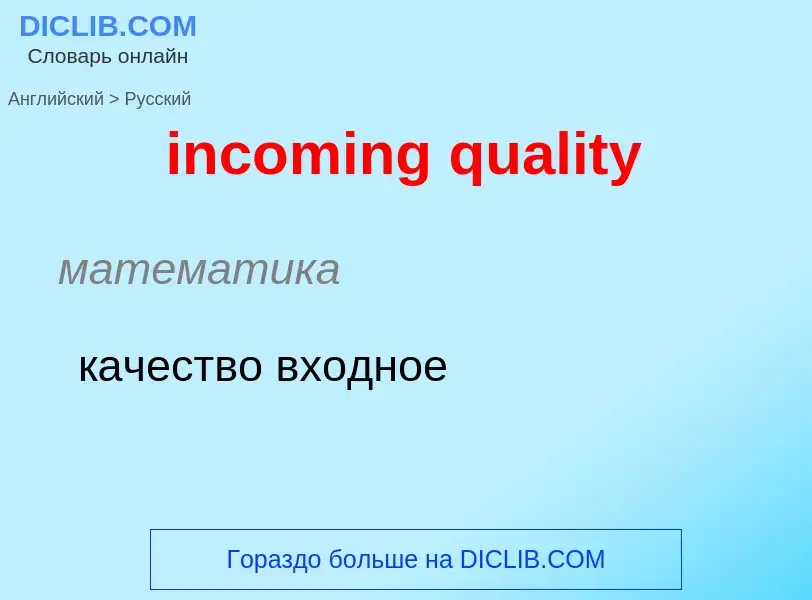Μετάφραση και ανάλυση λέξεων από την τεχνητή νοημοσύνη ChatGPT
Σε αυτήν τη σελίδα μπορείτε να λάβετε μια λεπτομερή ανάλυση μιας λέξης ή μιας φράσης, η οποία δημιουργήθηκε χρησιμοποιώντας το ChatGPT, την καλύτερη τεχνολογία τεχνητής νοημοσύνης μέχρι σήμερα:
- πώς χρησιμοποιείται η λέξη
- συχνότητα χρήσης
- χρησιμοποιείται πιο συχνά στον προφορικό ή γραπτό λόγο
- επιλογές μετάφρασης λέξεων
- παραδείγματα χρήσης (πολλές φράσεις με μετάφραση)
- ετυμολογία
incoming quality - translation to ρωσικά
математика
качество входное
['inkʌmiŋ]
общая лексика
влетающий
вторгающийся
входящий
доходы
поступающий
поступление
прибывающий
прибытие
прилагательное
общая лексика
входящий
приближающийся
прибывающий
вступающий (в права владения, должность и т. п.)
поступающий (о доходе, платеже)
наступающий
следующий
вступающий (в права, должность и т. п.)
поступающий (о платеже)
существительное
['inkʌmiŋ]
общая лексика
приход
прибытие
обыкн. доходы
поступления
приход, прибытие
Ορισμός
Βικιπαίδεια
In business, engineering, and manufacturing, quality – or high quality – has a pragmatic interpretation as the non-inferiority or superiority of something (goods or services); it is also defined as being suitable for the intended purpose (fitness for purpose) while satisfying customer expectations. Quality is a perceptual, conditional, and somewhat subjective attribute and may be understood differently by different people. Consumers may focus on the specification quality of a product/service, or how it compares to competitors in the marketplace. Producers might measure the conformance quality, or degree to which the product/service was produced correctly. Support personnel may measure quality in the degree that a product is reliable, maintainable, or sustainable. In such ways, the subjectivity of quality is rendered objective via operational definitions and measured with metrics such as proxy measures.
In a general manner, quality in business consists of "producing a good or service that conforms [to the specification of the client] the first time, in the right quantity, and at the right time". The product or service should not be lower or higher than the specification (under or overquality). Overquality leads to unnecessary additional production costs so it should not be considered a "good" thing.

